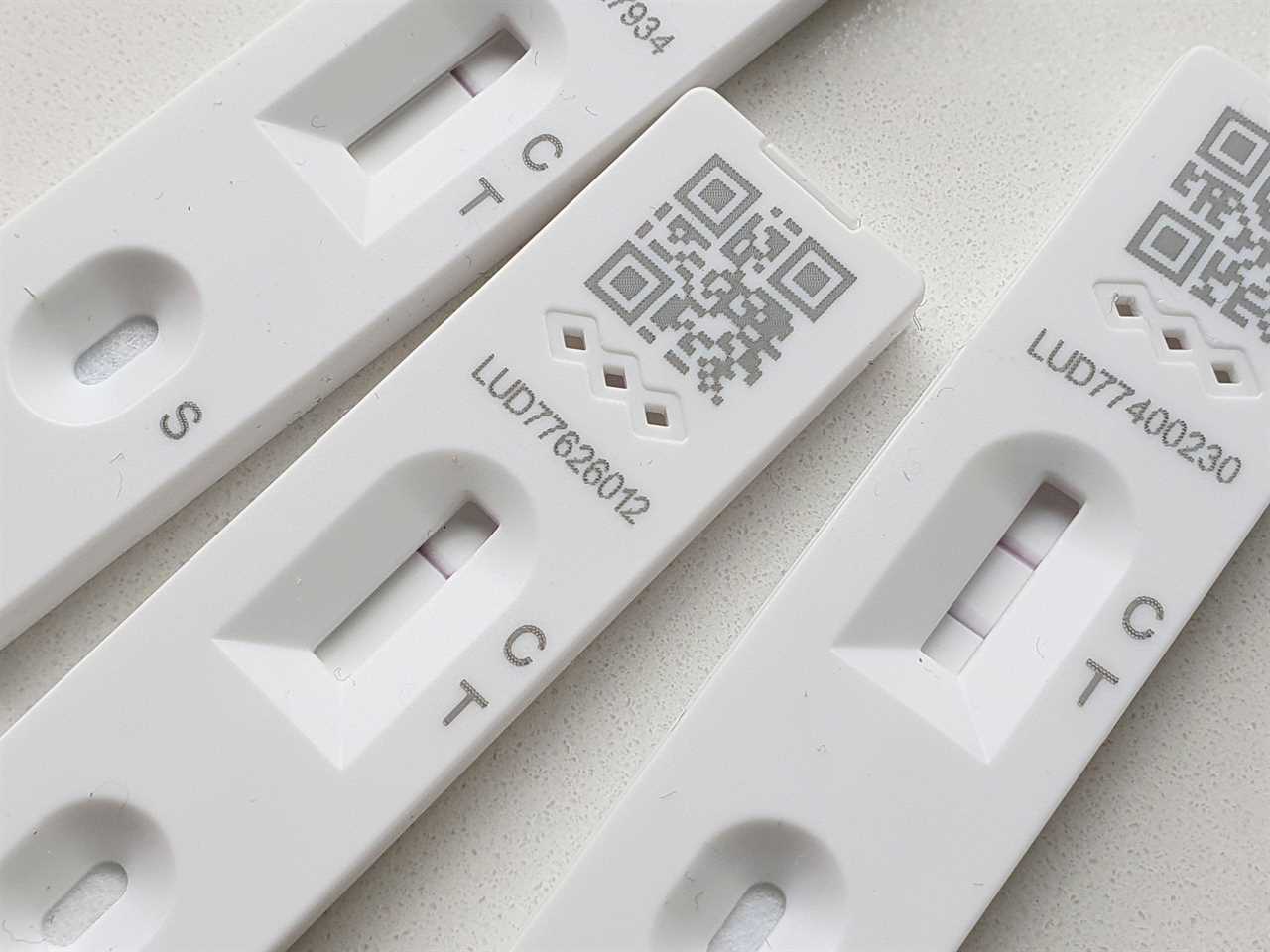HEALTH bosses have made a change to the UK’s testing rules in order to keep a cap on Covid in the lead up to Christmas.
The virus is being diagnosed in tens of thousands of people per day, and this may rise even further as the festive season picks up.

Lateral flow tests are swabs that can be conducted at home, giving results in less than 30 minutes.
They can be ordered for free online or picked up from pharmacies or workplaces.
Initially, the Department of Health advised everybody in England to use them twice a week in order to find cases of the virus in people who were not showing symptoms.
But it has changed its guidance with barely any notice to the public, experts say.
The website now says you should take a lateral flow test:
- if you will be in a high risk situation that day
- before you visit people who are at higher risk of severe illness if they get Covid-19
A “high risk” situation is deemed one in which you’ll be in an enclosed and crowded space, such as a club or party, or there is limited fresh air.
The advice remains that if you get any symptoms of Covid, you should get a free NHS PCR test urgently.
A spokesperson for the UK Health Security Agency said: “About one in three people with Covid-19 do not have any symptoms but can still infect others.
“Taking a free rapid lateral flow test before a period of high risk will give you peace of mind that you are unlikely to be infectious and able to spread Covid-19.”
It comes ahead of the busy festive period where people will be spending more time seeing loved ones, shopping or going to Christmas parties.
It suggests that if you are to hit the high street for Christmas shopping, where it could be busy and unventilated, you should take a lateral flow test.
Prime Minister Boris Johnson is trying to avoid toughening measures ahead of Christmas, despite the growing Covid epidemic in Europe.
Public warning
Layla Moran MP, Chair of the All-Party Parliamentary Group on Coronavirus, said she was “bewildered” at the new testing rules.
She said: “It’s bewildering that before considering basic and effective preventative measures like mask wearing and social distancing, the government has leapfrogged ahead to advise the much more onerous lateral flow testing for Christmas shoppers.
“Cases and deaths have been unacceptably high in the UK since the summer and Ministers must take responsibility and offer serious solutions to avoid another cancelled Christmas.”
Experts said the message on testing needed to be pumped out to the public.
Alan McNally, professor in microbial evolutionary genomics at the University of Birmingham, told The Guardian: “We need really strong public messaging and for our leaders to lead by example.
“I don’t think anyone knows what’s going to happen in the next couple of months, but if we want to avoid another dreadful Christmas because cases get out of control, then we need some new public messaging on TV and radio and to have some [prime ministerial] briefings to the public.”
Prof McNally said health chiefs did not make enough effort to point out the unreliability of lateral flow tests.
A positive test is almost always correct. But a negative test could be wrong as it does not always pick up traces of the virus.
Iain Buchan, professor of public health and clinical informatics at Liverpool University, said “test before you go” should cut the spread of Covid unless it led to large numbers of people going to crowded places who would otherwise not have gone.
“The communications around ‘test before you go’ should remind people that they first need to get vaccinated and take other precautions such as wearing face coverings in crowded enclosed spaces where possible,” he said.
Elsewhere in the UK
People in Scotland, Wales and Northern Ireland are still being told they should take a lateral flow test twice a week.
In Northern Ireland people are being urged by Stormont ministers to work from home where possible in a bid to curb cases.
In Scotland, people can show proof of a negative later flow result to enter nightclubs or large events, after vaccination status was needed from October.
First Minister Nicola Sturgeon warned of a “precarious” position in Scotland but stopped short of extending the vaccine passport scheme to more venues.
Welsh health minister Eluned Morgan told a Plenary meeting in the Senedd that Wales was “not out of the woods yet” but said there will be no changes to the rules for another three weeks with the country remaining on Alert Level 0.






